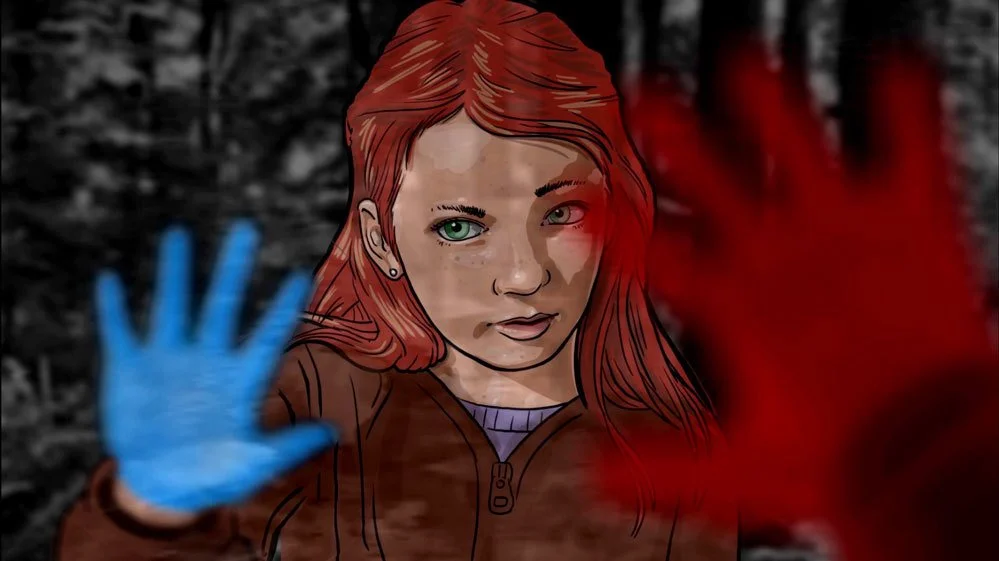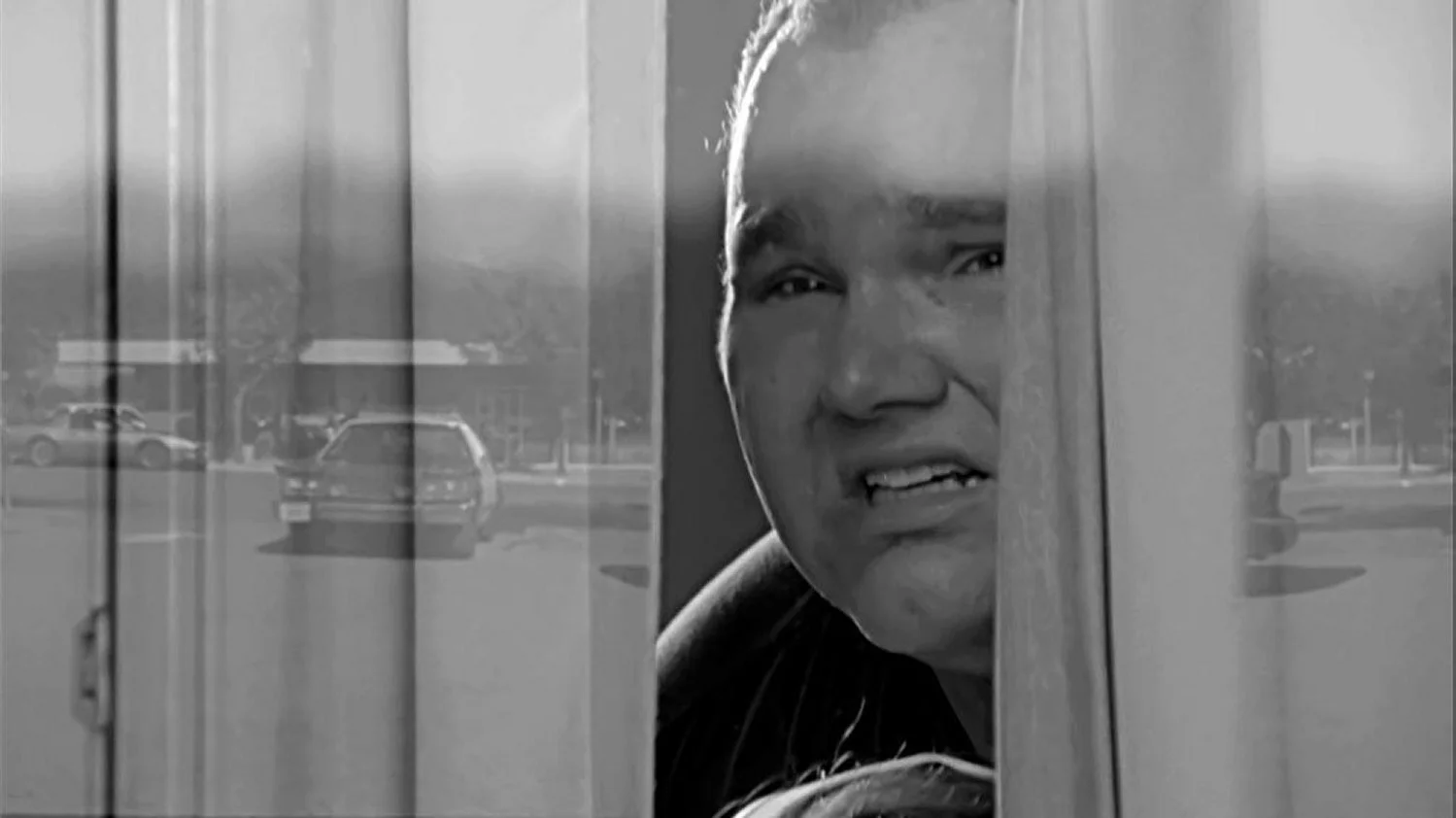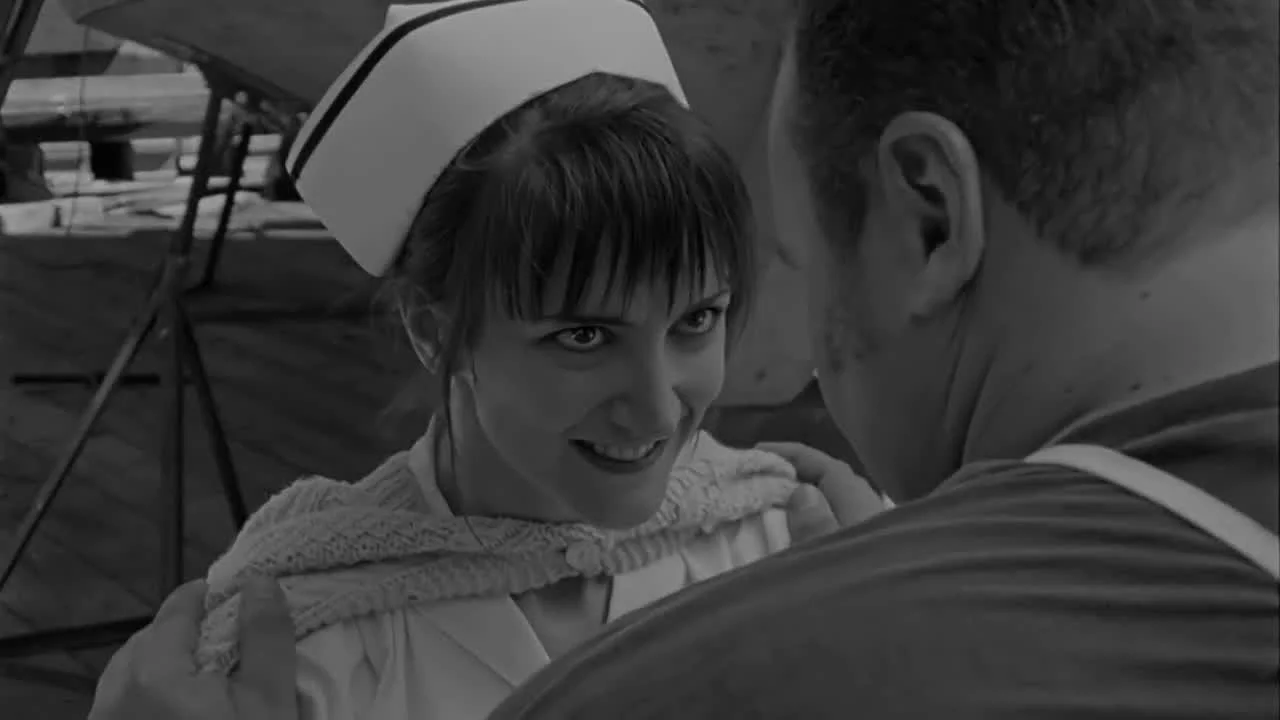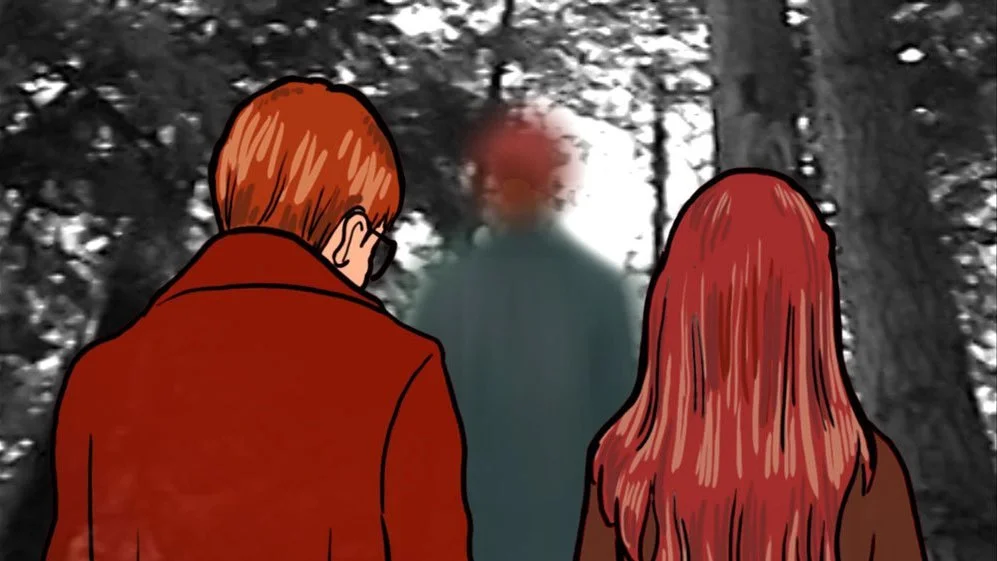Anthony Harrison’s Joe Finds Grace is the kind of indie oddity that feels like it washed ashore from a different decade and then stumbled into 2017 almost by accident. Shot primarily in black and white and punctuated with sudden bursts of color, TikTok-style needle drops, and occasional rotoscoped animation that recalls A Scanner Darkly, it is a micro-budget comic tragedy that does not follow rules so much as wander around them. That is both the film’s charm and sometimes its limitation.
Joseph Briteman, played by Harrison himself, is a disfigured, quiet, institutionalized man who breaks away from his “life skills” program and hits the road. What he wants is simple: to find his long-lost sister Grace. The road he chooses is anything but. Harrison populates Joe’s journey with oddballs, vaudeville-style slapstick, and moments that feel pulled from lost 1920s comedies. The film at times plays like a Pee-wee Herman road feature without Pee-wee’s verbal chaos, or like that era of strange cover VHS that kids rented because it looked fun, for example, something like Bingo. Remember that one?
Joe doesn’t speak, yet Harrison’s performance is surprisingly emotional for a character buried under SFX prosthetics. Every micro expression becomes a sentence. His eyes end up doing the heavy lifting, a smart choice from a filmmaker leaning into silent cinema DNA.
One performance that deserves specific mention is C. Ernst Harth as Horst Himmelferger. He plays Joe’s pursuer, and he is funny when the film needs levity, but he also shows a real range and depth in the way he calibrates his concern, frustration, and guarded affection for Joe. His choices are small but precise, and the character could have tipped into caricature without an actor who understands how to internally ground the joke. I also appreciate that he personally suggested this film to me, which makes the experience of watching it feel even more meaningful.
The film’s biggest swing, which is the collage-style sound and color choices, is also its most divisive. The TikTok and public domain music cues are sometimes clever and sometimes jarring, and they do not always sit comfortably with the heavy emotional content underneath. The film wants to be heartbreaking and goofy at the same time, and occasionally the tonal welding sparks and misfires.
When it works, it lands with surprising force. A late reveal is genuinely sad. The use of color as Joe’s emotional overwhelm gauge is inspired. Its micro budget inventiveness, along with the festival awards backing it up, are the kind of indie swinging fences that genre events are built for.
At 83 minutes, Joe Finds Grace is strange, sweet, sometimes annoying, visually experimental, and ultimately quite moving. It plays like a graphic novel mixed with Chaplin and YouTube, with a sadness about loss, denial, and the fantasy worlds we build around the people we miss. It will not be for everyone, however, for those who appreciate hand-built cinematic outliers, the kind of movies that do not resemble anything else in the new release queue, this is the kind of tiny discovery that reminds you why indie exists at all.
Jessie Hobson





